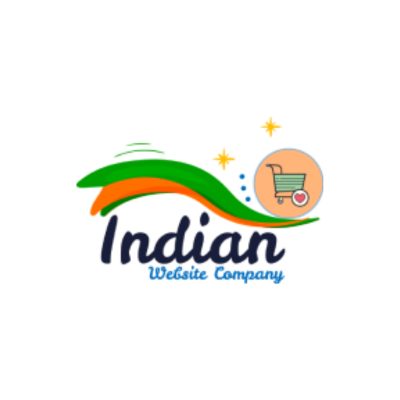Why Do We Use Static Websites?
 Indian Website Company
Indian Website CompanyIntroduction
In the ever-evolving landscape of web development, the choice between static and dynamic websites is a critical decision for businesses and individuals alike. Understanding the nuances of static websites and their relevance in the digital realm is paramount. This article delves into the intricacies of static websites, exploring their definition, examples, advantages, disadvantages, trends in 2024, and the optimal programming language for their creation. Additionally, we'll touch upon specific static website packages available in India, exemplified by the Indian Website Company (IWC).
What is a Static Website?
A static website is a collection of web pages with fixed content, presenting the same information to every visitor. Unlike dynamic websites, static sites do not engage in server-side processing or database connectivity. They consist of HTML, CSS, and sometimes JavaScript, rendering pre-built pages directly to users. The simplicity of this structure offers advantages in specific scenarios, emphasizing efficiency and rapid page loading.
Example of a Static Website
To illustrate the concept, consider a portfolio website showcasing a photographer's work. Each page contains unchanging information about the artist, their bio, and a gallery of selected images. As users navigate through the site, the content remains constant, emphasizing a straightforward and seamless user experience.
Advantages and Disadvantages of Static Websites
Static websites, characterized by their fixed content and absence of server-side processing, come with a set of advantages and disadvantages that cater to specific needs and preferences.
Advantages:
Speed and Performance: Static websites excel in delivering rapid load times. By eliminating server-side processing, these sites present content swiftly, ensuring an optimal user experience. The streamlined architecture contributes to quicker page rendering.
Security: The inherent simplicity of static websites translates to heightened security. With no server-side scripting or database interactions, the attack surface is reduced, making static sites less susceptible to cyber threats. This fortification is especially crucial in an era marked by increasing online vulnerabilities.
Cost-Effectiveness: Hosting a static website is cost-effective. These sites require less server resources, leading to lower hosting expenses. For businesses or individuals with budget constraints, static websites offer an economical yet reliable online presence.
Disadvantages:
Limited Interactivity: A notable drawback of static websites is their limited interactivity. Unlike dynamic websites that can engage users with real-time content updates and interactive elements, static sites present fixed information. This can hinder user engagement and interaction levels.
Content Updates: Modifying content on a static website often involves manual intervention. Each update requires editing and uploading files, potentially causing delays in reflecting the latest information. This can be cumbersome for websites requiring frequent content changes.
Scalability Challenges: As a business or project expands, static websites may face scalability challenges. The absence of dynamic features and server-side processing limits the ability to seamlessly handle growing amounts of data and user interactions. Dynamic websites may be more suitable for large-scale projects with evolving requirements.
Complex Site Maintenance: While static websites are simpler in structure, maintenance can become complex, especially for large sites with numerous pages. Updating common elements across multiple pages may require meticulous attention, making it more time-consuming than dynamic counterparts with centralized content management systems.
Trends of Static Websites in 2024
As we peer into the future of web development, the resurgence of static websites is noteworthy. The demand for quick-loading, secure, and cost-effective online platforms propels static sites into the limelight. Embracing a back-to-basics approach, developers are rediscovering the efficiency and reliability that static websites offer.
Which Language is Best for Static Websites?
Choosing the right programming language is pivotal for static website development. While HTML and CSS form the backbone, the inclusion of JavaScript enhances interactivity. JAMstack architecture, leveraging JavaScript, APIs, and Markup, is gaining traction for its ability to create dynamic experiences without sacrificing the benefits of static sites.
Static Website Packages in India | IWC (Indian Website Company)
In the vibrant landscape of Indian web development, static website packages hold significant appeal. Indian Website Company (IWC) stands at the forefront, offering tailored solutions that encapsulate the essence of static websites. With a focus on efficiency and affordability, IWC's Static Website Packages in India cater to a diverse array of businesses, empowering them to establish a robust online presence.
Conclusion
In the digital tapestry of websites, static sites emerge as a pragmatic choice for specific requirements. The balance between speed, security, and simplicity positions static websites as a timeless solution, and as we move into 2024, their relevance in the web development landscape is set to endure. Choosing the optimal programming language and considering reputable providers like the Indian Website Company empowers individuals and businesses to harness the advantages of static websites effectively.
Read also:
How Can I Optimize Mobile App Development Costs without Compromising Quality?
Static Website Design Package Cost in India
How To Create An Inclusive App?
What is the Approximate App Development Cost in India?
7 Principles For Successful eCommerce Sites
How to Use Beta Testers in Mobile App Development?
Know the Actual Mobile App Development Cost in India
Dynamic Website Cost in India: List Of Factors That Determine Dynamic Website Cost
Subscribe to my newsletter
Read articles from Indian Website Company directly inside your inbox. Subscribe to the newsletter, and don't miss out.
Written by

Indian Website Company
Indian Website Company
Indian Website Company is a leading website design company in India based in Indore. With an experience of more than a decade, the web development company offers top notch and efficacious website related solutions to small to medium sized businesses and startups. We are a professional web design & development, eCommerce website design, graphics designing and app design company in India.